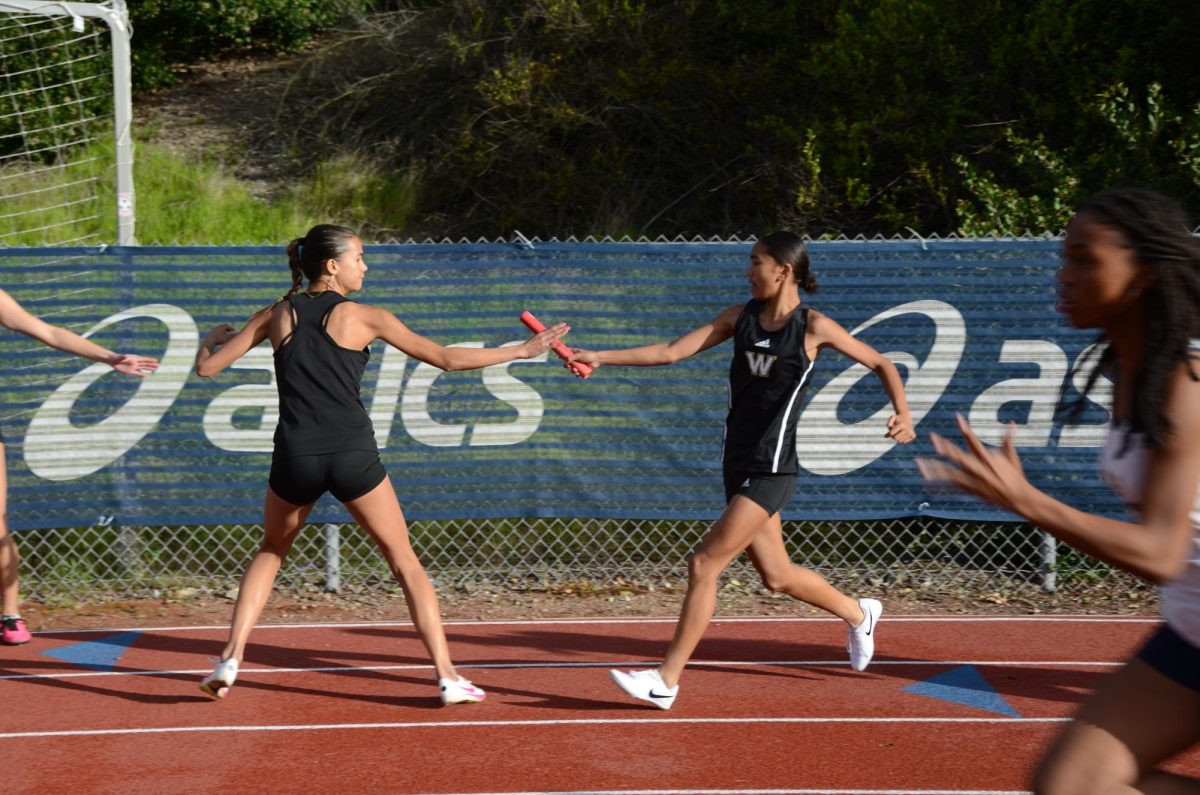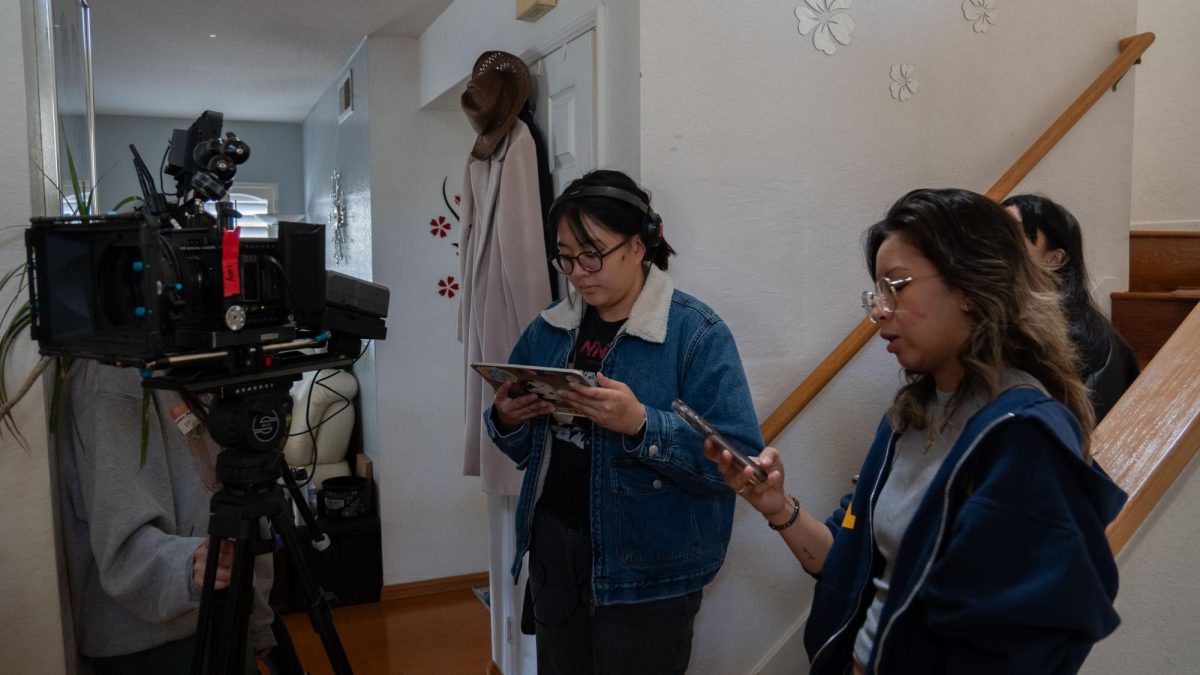“I’m Ethiopian.”
That was the opening line to a story in which Rehana Nasser (12) has lived—a story of race, of guilt, of shame, of terror, of hopelessness.
That was the opening line of Rehana Nasser’s (12) speech, entitled “Black, But Not Really,” which she performed and placed fourth overall with, March 3 at the Speech and Debate state qualifiers at San Dieguito Academy.
“There’s a strange duality I feel being African-American and Ethiopian-American,” Nasser said. “I’ve always felt this conflicting identity, especially with the fact that my great-grandparents owned slaves and when I found that out I struggled to deal with it a lot.”
Throughout Nasser’s speech, she focused on the concept of living with the illusion of a post-racial society, but how easy it can be to fall into the trap of stereotyping those who are less fortunate. Conforming to these stereotypes, Rehana said she believes, can especially happen to those who live in a more privileged community like Rancho Penasquitos, a place where she has noticed that the effects of racism are not as predominantly seen.
“The effects of slavery last up until today and I feel the effects of it just looking the way I do,” Nasser said. “So connecting that with my history and living in [the United States] at the same time was something I’ve always really wanted to write about.”
Simultaneously, Nasser tied in personal anecdotes that dealt with being black, or more so, “not black enough.”
The second paragraph of her speech reads, “I’m reaping rewards because my life was supposed to have always been unfair; technically I’m the legitimate offspring, but here, I am just in the minority of a minority. And I felt guilty for being more special than I deserved to be until white men started looking at me funny.”
One of the anecdotes she relayed is based on an incident that occured while she was walking to a library last summer. Nasser was catcalled for the first time by a black man in Iowa City. In front of her walked two white women, who glanced back but ignored her eyes, which Nasser wrote “bore ahead, pleading for help.”
“I don’t know if it was racially based or not, but they looked back and I think [they were] concerned for a second, but then they kept walking forward,” she said. “I felt in that moment that they thought I was somehow connected to him, or knew him, or was related to him. That’s presumptuous of me, but with these types of things I think you have a sense of intuition about them.”
But while Nasser could not assuredly say what the women were thinking that day, she could confidently write about the way she, herself, felt that day.
Nasser recalls sitting in the library for 20 minutes, stagnant and too afraid to go back outside for the fear that the man still would be there.
And so, when Nasser stood on the stage to speak about her experiences, she talked about the burning shame and terror she felt—emotions that rooted in both the way the women seemed to have ignored her though she was on the verge of tears and way she felt as though the women thought she was somehow related to or knew the cat-caller.
“That [experience] stuck with me for a long time,” Nasser said. “I asked myself, ‘Why am I feeling this way? Why am I feeling grossed out with myself because I know it wasn’t my fault?”
On the day of the state qualifiers, Nasser performed the speech four times: twice during pre-semifinals, once during semi-finals, and another during finals.
Before that day, however, she had only performed it once outside of practices. While Nasser’s words may have stumbled together a few times during the first round, she recalls her emotions finally pushing through during the later rounds. As she reached the climax of her speech where she was screaming out her words, lumps grew in the back of her throat, and her eyes became glossy. In those moments, Nasser said her words were being felt rather than recited.
“That was surprising to me because whenever I practiced it, I felt completely fine,” Nasser said. “But with the competition anxiety and the pressure building, and seeing people’s actual reactions in the audience, I realized how much it means to me. It’s easy to get numb after practicing something for a certain amount of time, but it became much more real when I started feeling my words.”
With the crowd’s undivided attention to each word that came from Nasser, it became increasingly evident to her how much power words can have. This experience, along with living with her nonverbal brother, gave Nasser a glimpse of the power of words. Throughout the years, Nasser found herself assisting her parents in writing emails and letters for her brother.
“It showed me how vocal writing is, how it gives you a voice,” Nasser said. “When you see audience members looking at you or even nodding their head, it just motivates you even more.”
In another part of her speech, which more so focused on the idea of living in a post-racial society, Nasser wrote that though we live in a progressive state, “racism doesn’t abate just because its immediate environment takes on a different label.”
She touched on the small, yet problematic details she noticed non-black people even at her school doing: the way that kids use black vernacular, “pull their caps backwards and their pants down low, say ‘aw hell naw, dawg’ and ‘f’sho’ every other sentence.”
Nasser goes on to explain how they lack consideration for the origins of these things, so that’s why they’ll do things like apologize for using the n-word when they happen to say it in front of her.
“And in the same breath, slip the skin off my face and put it on, stretch it until I can’t recognize myself,” she wrote in her speech.
Nasser said that she wanted to make it clear that the types of experiences that she touched on during her speech, such as the aforementioned or the catcalling incident, were very minor in hindsight.
“I wanted to show that black people tend to go through much, much worse things on a day-to-day basis where racism is a lot more prevalent and a lot more obvious, but even these subtleties, these microaggressions hurt,” she said.
Kickstarting a conversation about race and minorities continues to be a goal for Nasser, as she said she hopes that people think about their words but not necessarily censor themselves.
“I don’t want us to stick with the idea of being a colorblind society because we’re not, and it’d be horrible if we were because diversity is so important, but I want people to realize that there is so much more to the racial issue than just black people not liking white people or white people not liking black people—it’s really nuanced and people need to look towards that and start a conversation,” she said.
And Nasser is fully aware of the human capacity to do so, as she herself has experienced the power of words.




